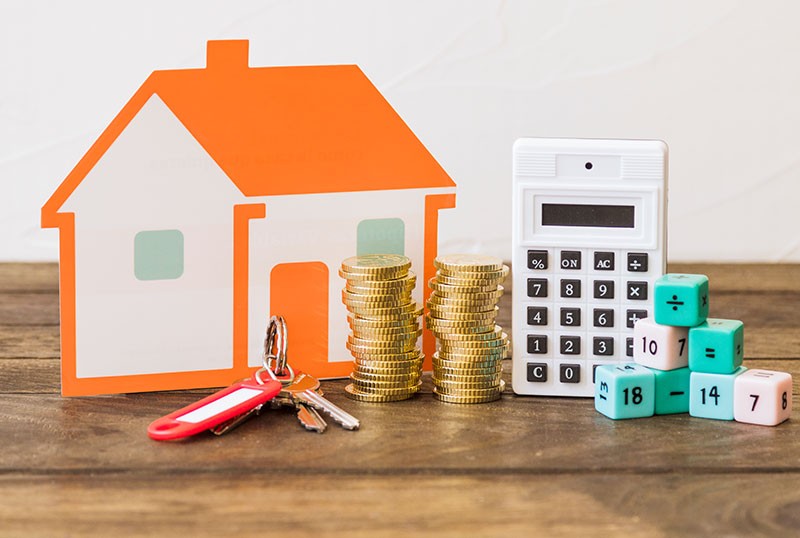Increasingly, more people are looking for ways to earn more income that doesn’t just come from their day jobs. Having multiple streams of income can help sustain your regular monthly expenses with extra cash for savings and investments.
A source of passive income is investing in real estate, such as rental income from your property. However, this investment often requires a large capital – you first need to purchase a property. And unless you are extremely cash-rich, you would likely need to apply for a housing loan.
Once you enter into debt, it is crucial you know how to keep your finances healthy, manage your income, and set financial goals.
Before purchasing a second property for the sole purpose of investment, it’s important to plan out your finances and budget the required amount, as the costs can add up quickly.
What should you consider before buying a property for investment? Read on to find out more.
1. Downpayment
You will need to make a downpayment initially either in cash or a combination of cash and your CPF Ordinary Account (OA) savings.
If you are using your CPF OA savings to pay for your downpayment or mortgage, do note that when you sell your property in the future, you will need to return the fund to your OA — not just the amount you have withdrawn for your housing payments, but also the CPF accrued interest (i.e. the interest you would have earned if you had not withdrawn your monies from your OA).
2. Repair and renovation costs
You will also have to take into account possible renovation costs after you have bought your property, to ensure that your property is in good condition before finding a tenant. When potential tenants visit your property, this is an important factor they would look at.
If a place is nicely renovated and fully furnished, it would be easier to find tenants as they would be able to move in without much hassle. They also wouldn’t need to buy furniture, which would save them time and money.
Of course, this means that you can also charge a higher rental fee for a fully furnished and renovated apartment.
When things break down years later, you will need to factor in the costs of the repair and maintenance work involved.
If you need financial help for your property renovations, a renovation loan may be helpful for you.
3. Additional buyer stamp duty (ABSD)
If you are buying a second property, you will need to pay the Additional Buyer Stamp Duty (ABSD), which is currently 17% of the property purchase price or market value of the property (whichever is higher). This can be a hefty cost to pay, so you need to do your math before you buy — will this investment still be profitable for you after factoring in the costs?
You can only qualify for ABSD remission if you sell your first property within 6 months of your second property purchase and the second property is purchased by both you and your spouse as a married couple.
Some people do this so that they can use the second property for investment while choosing to rent a smaller apartment or stay with their parents.
4. Property agent commissions
If you are purchasing a property or trying to find a tenant, chances are you will need to rely on the services of at least one property agent.
If you are buying an HDB flat, you will need to pay up to 1% of the purchase price in commission to your agent. And if you are finding a tenant, the landlord has to pay up to one month’s rent to the landlord’s agent.
These are important costs you cannot neglect as well.
5. Estimate your potential rental revenue
It’s important to plan out the possible Return On Investment (ROI) you are hoping to gain from your property.
First, estimate the annual rental income you will be receiving from your tenants. This amount should be decided based on your annual operating income, which includes property tax, home insurance, and maintenance fees.
You should be earning a substantial profit if you budget and charge the required amount. Of course, any landlord has to have the time to manage their property. Before you get a tenant, advertising and impromptu home viewings can take up a lot of time so some may choose to hire a property agent to help to manage those aspects.
6. Do you still have any existing debt?
If you have existing debt such as credit card bills, study loans, or a personal loan, adding on a property purchase can be a nightmare.
However, a great way to simplify your existing loans on top of the property loan would be to opt for a debt consolidation loan in Singapore for your existing debts. This helps to streamline all your eligible unsecured debts into just one loan with one interest rate (which will usually be less than the interest rates for your existing loans).
You will just have to focus on repaying one single loan with a single bank or money lender every month, which will reduce the possibility of you forgetting your repayment dates hence incurring late fees and penalties.
Most banks and any reputable private money lender in Singapore will be able to offer you this type of loan so that you can get your property loan with greater ease subsequently.
However, take note that banks and financial institutions that offer debt consolidation plans have extremely stringent criteria that borrowers must meet, including the level of indebtedness. You may find that licensed money lenders’ debt consolidation loans are much more accessible.
Pick the most suitable loan for your property investment
A passive income is all about receiving a constant stream of income without having to put in the working hours and an investment property does just that.
First, you will have to approach a financial institution to apply for a housing loan. While local banks can offer these loans, some may opt for a private money lender in Singapore especially if they have a low credit score and need quick cash.
As mentioned, be sure to pick a loan with a decent interest rate and loan tenure. The point of making your property a long-term investment is to be able to make a profit from it while also paying off your monthly mortgage using rental income.
Even after your property debt has been paid off, you can continue to earn a monthly income from your property — it can be a long-term lucrative stream of income as long as the maintenance costs are well-covered.
Do your research well. Choose a property that can generate higher rental yield and pick a loan plan that works best for you when it comes to interest, loan tenure, and other loan terms.
Legal licensed money lenders like Soon Seng Credit will be able to give you a leg up so you can get ready for your next property investment with peace of mind. Hesitate no more and get a non-obligatory loan quote with us today.
About the Author
Leveraging almost 40 years of local moneylending experience, Soon Seng Credit is one unmatched licensed lender you can trust when it comes to the educational materials, knowledge, and care we share with our valued customers and website users.








